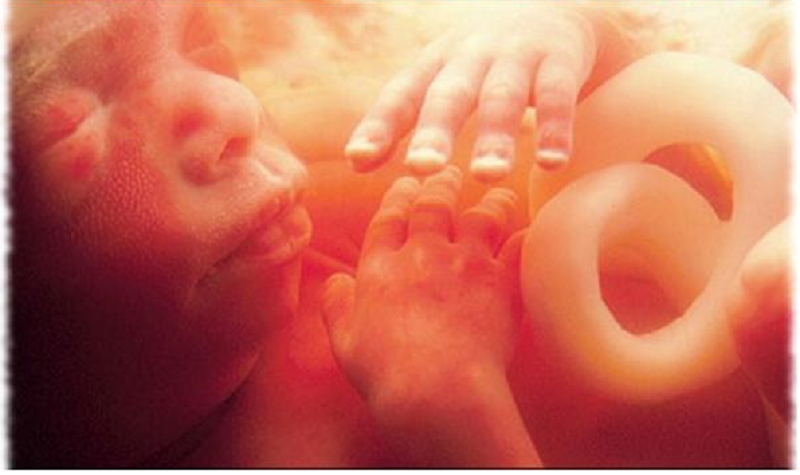A controversial new Utah law that requires anesthesia for babies being aborted after 20 weeks will go into effect this week.
A first in the U.S., the law passed the Utah legislature earlier this year and Gov. Gary Herbert signed it in March, LifeNews reported. The new law requires that abortion doctors give anesthesia to “eliminate or alleviate organic pain to the unborn child” in abortions at 20 weeks or later. Exceptions are allowed for women at risk of irreversible injury or death, and for unborn babies diagnosed with fatal conditions.
Utah state Sen. Curt Bramble, who sponsored the legislation, said Utah protects death row inmates and animals being euthanized from painful deaths, and it should do the same for unborn babies who are being aborted. Bramble previously said he would ban abortion altogether if he could, but his current legislation is a step in that direction.
The Deseret News reports that Utah abortion supporters are upset by the new law and abortion doctors say they are unsure how to give unborn babies anesthesia.
Leah Torres, an abortion doctor and activist, told the newspaper that anesthesia can be risky, and she is concerned about the well-being of her women patients.
“I cannot violate my oath as a physician … and I cannot increase risk that is undue and undesired by my patient,” Torres said. “If that gets me arrested, I suppose that’s a risk I’m willing to take for the well-being of the patient.”
Torres also said the administering of anesthesia to unborn children does not exist in “standard medical practice.” Generally, when anesthesia is given, it is to alleviate the mother’s pain. In an interview with the New York Times, Torres accused legislators of making her “invent a procedure that doesn’t have any research to back it up.”
Alexandra Eller, a maternal-fetal medicine specialist, called the new law cruel to women who abort their unborn babies late-term — often because the baby has a disability or fatal diagnosis. She said most women who have late-term abortions have “wanted pregnancies,” and sometimes choose not to have anesthesia because they want to say goodbye to their child.
“If you sat with these families after the delivery as they hold these precious babies dying in their arms, you realize this is not what they want to do,” she said. “This is not about a callous decision to end a pregnancy. To legislate that we anesthetize the fetus so that it never takes a breath — so that a woman never has the chance to say goodbye — is really cruel.”
Eller said nothing about the cruelty of the abortion procedure for the unborn child.
There is substantial scientific evidence that unborn babies can feel pain at 20 weeks or earlier, though abortion advocates cite their own studies that dispute the fact.
According to the report:
Researchers agree that fetuses far younger than 20 weeks will respond to poking and prodding by squirming away or showing elevated stress hormones. But some researchers say these are unconscious reflexes in response to painful stimuli.
To be conscious of pain — to “feel” pain — requires higher-level neural wiring that fetuses do not develop until far past 20 weeks gestation, many say.
The American Congress of Obstetricians and Gynecologists opposes fetal pain legislation based on two research reports — one from the influential Journal of the American Medical Association from 2005 and another from the U.K.’s Royal College of Obstetricians and Gynecologists from 2010.
The first review found that fetuses are not likely to have the neural pathways in the cortex necessary to consciously feel pain before the third trimester, or about 27 weeks. The second review concluded that the threshold is closer to 24 weeks.
But rigorous research on fetal pain research is scant, and there is room for debate, according to Maureen Condic, an associate professor of neurobiology and anatomy at the University of Utah.
Condic, who gave congressional testimony in favor of a bill that would have banned all abortions past 20 weeks, argues that the opinions laid out in the two oft-cited reports are based on popular opinion more than sound science.
Condic said she doubts whether the late-developing cortex is necessary for conscious perception of pain. Animals who do not have higher-functioning cortical structures like fish and birds still appear to suffer, she pointed out.
“If you chopped a wing off of a live chicken and it ran around squawking and flapping its wing frantically and ran away from you, is it suffering?” she asked.
“If we wouldn’t do that, if we wouldn’t approve of a little kid who tortures a fish by tearing off its fins, how can we argue that a fetus can’t suffer?” Condic said.
However, as previously reported on LifeNews, there is some debate even within the pro-life community about the message of such legislation.
Pro-lifers agree on the fact that unborn babies feel pain at 20 weeks or sooner. Dr. David Prentice of the Charlotte Lozier Institute said science conclusively shows that “young babies still in the womb at 20 weeks after conception, and probably even earlier, do indeed feel pain, and in fact, may feel more intense pain than a newborn or an adult.”
Prentice explained that unborn babies may feel excruciating pain during abortions because they have a high density of nerve receptors but lack pathways to tone down pain.
However, some pro-lifers argue that methods of making abortion more humane and acceptable miss the point, since a painless killing still results in death. Other pro-lifers argue that as long as abortion is legal, the baby should be spared unnecessary pain.
A November 2014 poll from Quinnipiac found that 60 percent of Americans support legislation limiting abortions after 20 weeks, including 56 percent of Independents and 46 percent of Democrats.








